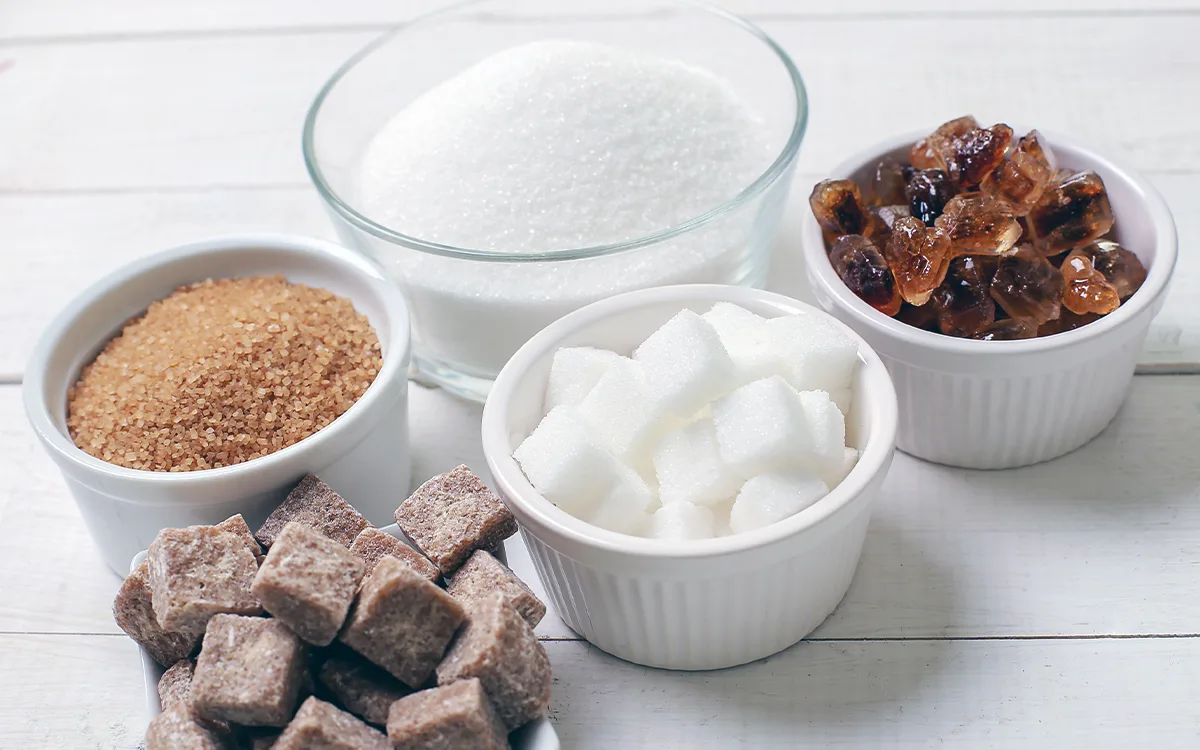Have you ever stopped to wonder about the sugar in your diet? From the glucose fueling your body to the fructose in your favorite fruits and processed snacks, sugar plays a more significant role in our lives than we often realize. But not all sugars are created equal. Each type of sugar interacts with your body differently, influencing everything from your energy levels to your overall health. Let us explore the fascinating world of glucose, sucrose, and fructose and how they impact your diet.
The Basics of Sugar: What Are Glucose, Sucrose, and Fructose?
Glucose: The Body’s Primary Energy Source
Glucose is a simple sugar found in many foods and beverages. When you consume carbohydrates, your body breaks them down in the small intestine into glucose, which is then absorbed into the bloodstream. This process ensures that your cells have a constant supply of energy to function efficiently.
Blood glucose levels, typically measured in mg/dL (milligrams per deciliter) through blood tests, are critical indicators of health. Stable blood sugar levels help you feel energized and focused. On the flip side, high levels can lead to long-term complications, while low levels might leave you feeling fatigued and irritable.
Sucrose: A Sweet Blend of Glucose and Fructose
Commonly known as table sugar, sucrose is extracted from sugar beets or cane. It is made up of equal parts glucose and fructose, offering a sweet taste that’s hard to resist. Once consumed, sucrose is broken down into its two components, glucose and fructose, in the small intestine.
While sucrose is a staple in many diets, consuming it in excess can lead to high levels of blood sugar, weight gain, and other health concerns. It is the combination of glucose and fructose that makes sucrose particularly impactful and why it is essential to monitor your intake of table sugar.
Fructose: The Sweetener in Fruits and More
Fructose is naturally found in fruits, honey, and some vegetables. Unlike glucose, which is absorbed directly into the bloodstream, fructose is metabolized primarily in the liver. While moderate fructose intake from natural sources like fruits is generally considered healthy, excess fructose consumption often from processed foods and sweetened beverages can have adverse effects.
The effect of fructose on the liver has been linked to fat accumulation, disruptions in blood sugar regulation, and even weight gain. It’s crucial to differentiate between natural fructose in whole foods and the added sugars in processed products.
How These Sugars Affect Your Diet
Glucose: The Good and the Bad
Glucose is indispensable for survival, but balance is key. Foods rich in complex carbohydrates, like whole grains, legumes, and vegetables, release glucose slowly, providing sustained energy. In contrast, sugary foods and refined carbs cause rapid spikes in blood sugar levels, followed by crashes that leave you craving more.
Monitoring your glucose level through regular blood tests can help you understand how your diet affects your overall health. For healthy individuals, maintaining a balanced intake of glucose is essential to avoid high levels that strain the body over time.
The Double Impact of Sucrose
Because sucrose combines glucose and fructose, it delivers a one-two punch to your diet. The glucose component directly raises blood sugar levels, while the fructose part adds an extra load on your liver. High sucrose consumption from sugary snacks, baked goods, and soft drinks can lead to excess calorie intake, weight gain, and fluctuating blood sugar levels.
The Hidden Risks of Fructose
The effect of fructose becomes particularly concerning with high fructose intake from processed foods. Unlike glucose, which prompts an insulin response to regulate blood sugar, fructose bypasses this mechanism, heading straight to the liver. Studies have shown that excess fructose consumption can lead to increased fat production in the liver, contributing to long-term health risks. For instance, consistently high levels of fructose may disrupt blood sugar levels and lead to weight gain.
Practical Tips for Managing Sugar Intake
Focus on Natural Sources
Natural sugars in fruits and vegetables come with essential nutrients like fiber, vitamins, and antioxidants. These components help moderate the absorption of sugars and provide added health benefits. For example, eating an apple which contains natural glucose and fructose is far better for your body than drinking apple juice loaded with added sugar.
Cut Down on Added Sugars
Added sugar is a hidden ingredient in many processed foods and beverages. Check nutrition labels for terms like “high-fructose corn syrup” or “sugar” to identify products with high levels of added sweeteners. Reducing your consumption of these items can help stabilize your blood sugar levels and manage weight gain.
Balance Your Diet
Incorporating a variety of whole foods including lean proteins, healthy fats, and complex carbohydrates helps regulate glucose and fructose intake. Avoiding sugary snacks and opting for nutrient-dense options keeps your energy levels stable throughout the day.
Stay Hydrated
Drinking water instead of sugary beverages is a simple yet effective way to manage your sugar intake. Staying hydrated supports overall health and helps manage the urge to reach for sweetened drinks.
Monitor Your Blood Sugar Levels
Regular blood tests can provide valuable insights into how your body processes different types of sugar. By keeping track of your glucose level, you can make informed dietary choices and adjust your habits as needed.
Conclusion: A Sweet Balancing Act
Understanding how glucose, sucrose, and fructose impact your diet is essential for making healthier choices. While glucose is a vital energy source, sucrose and fructose especially from added sugars require careful moderation. By focusing on natural sources, reducing added sugar, and monitoring your blood sugar levels, you can create a balanced diet that supports your overall health.
So, the next time you reach for a sugary treat, consider the type of sugar it contains and how it might affect your body. A little mindfulness goes a long way in maintaining stable blood sugar levels and avoiding long-term health concerns.

